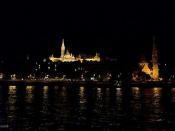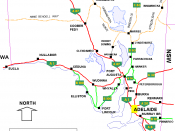South Australia's original diversity in religious beliefs was the key factor to South Australia's Label 'Paradise of Dissent'. When South Australia was first settled in the 1830's, one of the largest factors that attracted immigrants was the absence of a State Church. Immigrants could migrate to South Australia, without having a particular religious body to influence government and their own daily lives.
The Church had been a huge factor in England, and other major nations around the globe for past centuries. The state church would receive funding from taxes, and had influence in politics and general happenings in the country. People were restricted from education if they were of a different religion, and weren't wealthy. Citizens of different religions to the State church, were discriminated against, weren't given work, were often shunned, weren't sold goods, forced to be married and buried in the state church, and all round life was made as difficult as possible for them.
All of these factors made dissenters, who are people of differing views to the national or state church, to build a large resentment against the incriminating religion and their own country. Dissenters were very angry that they were forced to financially support a religion they were opposed to, which was what made South Australia a very attractive proposition.
When the plans for South Australia were drawn up, they had the support of many wealthy and powerful dissenters. South Australia was planned to have churches supported by 'voluntary subscriptions', and not a division of state aid. No grants were to made for religion/education from public funds. These were the major attractions for dissenters to them it seemed like a paradise, a place that they could practise their religions and beliefs without prejudice. In 1844 George Fife Angus stated 'It is hoped that...


